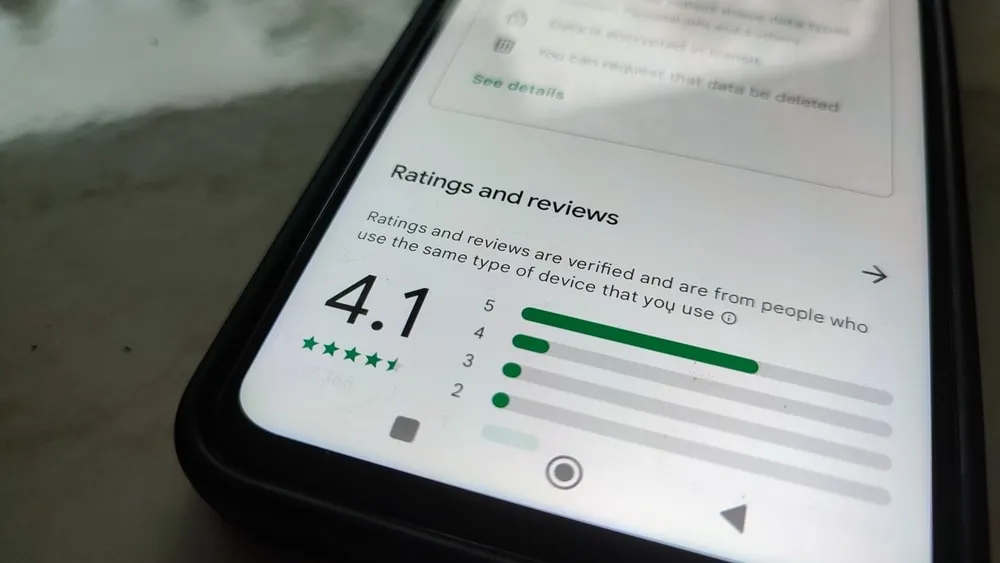Part 1: UpSwell’s Guide to Responding to Negative Patient’s Reviews
Surprisingly, we still observe many dentists and dental practice managers who don’t respond to their online reviews. Why? Responding to all patient reviews, good or bad, is an excellent opportunity for you to engage with your customers and at times, even help you turn your patients into advocates in the process.
Today, responding to your dental patient’s reviews is a must– no matter if they are positive or negative. Don’t worry! Gargle has compiled everything you need to know and how you can get started engaging today.
Why Responding to Reviews is Important
A study by Harvard Business School shows a positive impact on your business from the data behind responding to reviews. It shouldn’t be any surprise replying to a patient’s review can also be correlated with a higher overall star rating. After, all your patients appreciate engagement. A simple “thank you” can go a long way.
Google has even confirmed – that you are regularly responding to your patients’ reviews, it helps your SEO rankings. If you weren’t aware, Google is VERY interested in answering all of the same questions that your patients do. Engaging with every one of your customers shows that you care about them.
FACT: “Responding to reviews also helps you rank higher on search engines.”
How to Respond to Negative Reviews
It’s bound to happen, regardless of how great your services are. Preparing how to respond to receive negative reviews now, may seem a little disappointing, but you’ll be ready when the opportunity arises to show off your customer service. Showing your patients that you know how to resolve a problem not only provides the patient but any potential patients your commitment to a quality customer experience. When done correctly, you will improve your online business profile while also turning around your customer’s opinion. It’s a win-win.
Let’s get you started on a few ways you can begin to respond to negative reviews today.
Take a Deep Breath
Frustration comes with every negative review; it’s a given. Especially when you feel that you’ve made an effort to create a fantastic experience for every single patient. In reality, your patient did not perceive it that way. Your main goal when responding to a cynical patient is to be diplomatic about it, and ONLY state the facts.
Check Your Emotion at the Door
Please don’t take it personally. There’s good news with online reviews; you don’t have to respond immediately. A good best practice to follow is to get up from your computer, put the phone done, and step away for a second or two to compose yourself. Remember, a bad review isn’t necessarily a bad thing for your practice. What could be dangerous for your business is the negative perception your practice could get if you react to a review angrily. But don’t wait for too long, either. The faster you can respond to a review, the better. It allows potential patients to search for an opportunity to see your response to any negative concerns.
NEVER EVER Say “You’re Sorry”
Starting off your response with “I’m/We/You’re Sorry” is an EPIC fail. Why? When making this specific statement, you’re giving your patients 100% control of the conversation and possibly the outcome too. Not to mention that you are publicly stating that you, the dentist, are accepting or are responsible for whatever concern they have publicly too.
The first thing you should state your reply is an acknowledgment, letting your patient know you “hear” them. Use phrases like “I can see you are frustrated” or “Oh no, that doesn’t seem correct!”. Next, show them validation of their concern and that you care with statements such as; “Thank you for bringing this concern to our attention” or “I’m here to help you find a resolution.”. After all, don’t forget that every piece of patient feedback has the potential to help improve your dental practice experience.
Get to the Bottom of the Problem
The chances are that the customer is frustrated with a specific issue. Find what the problem is that the customer has experienced so that you can fix this issue on your own. Asking exploratory-type questions (What, how, when, etc.) and letting them do the majority of the talking will turn the tables in your favor. By limiting your exposure and any adverse PR risks.
Don’t be afraid to keep the conversation online as much as possible. Deleting your negative comments, posts, or reviews throws many red flags. This tactic is not a best practice and generally comes back to bite you harder in the long run.
FACT: A patient’s real issue can be found generally in the first sentence or two. 95% of the rest of their post is their emotional dump. Be the smart dentist, and don’t get sucked into chasing non-relevant concerns.
When to Move the Discussion Offline
Don’t let the discussion become a long, drawn-out war between you and the reviewer. A good rule is 3-4 replies back and forth before it’s time to take it offline. Or if you to the point where PI (personal information such as a phone number, address, account number, etc.) becomes required to resolve the issue. It’s much easier to solve an internal problem or continue the discovery discussion if you take it out of the public view. Leave a phone number or an email where the customer can reach you so that you can discuss the issue further.
After Providing Resolution
After finding a resolution to the patient’s satisfaction, it is vital you close the loop. Why? You’d be shocked at the number of dentists who do not close the loop on issues. The lack of a complete closure leaves the initial concern at bay and could also raise even more doubt with those potential patients reading older negative reviews.
It is okay to politely ask your now satisfied patient to either delete or edit their original review. After all, their view of your business has most likely changed since their initial experience.
TIP: If you are responding to a social media thread, especially one taken offline, it is best practice to reply one last time with phrases like “{Patient’s Name}, Thank you for allowing us to help resolve your concern today.” This tactic will help close the loop for future readers.
How UpSwell and our partner company, Gargle, Can Help Your Business Grow
Gargle is an intelligent dental marketing platform that helps dentists get the right tools and services, at wholesale pricing. No matter your strategy, Gargle has got you covered. Speak with a Gargle representative to see how we can help optimize your patient conversions and growth.






